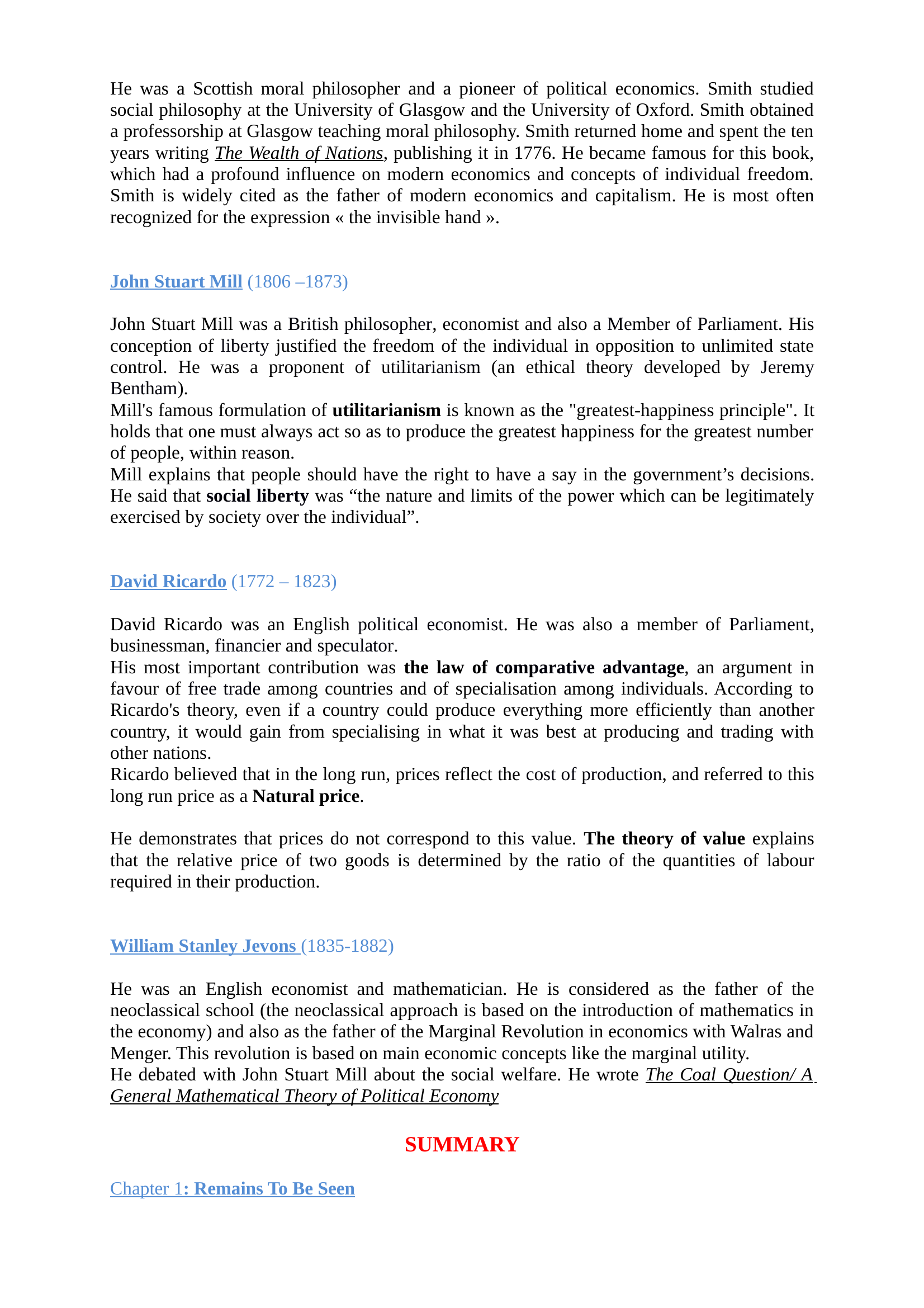HISTOIRE DE KEYNE BRITISH
Publié le 04/12/2012

Extrait du document


«
He was a Scottish moral philosopher and a pioneer of political economics.
Smith studied
social philosophy at the University of Glasgow and the University of Oxford.
Smith obtained
a professorship at Glasgow teaching moral philosophy.
Smith returned home and spent the ten
years writing The Wealth of Nations , publishing it in 1776.
He became famous for this book,
which had a profound influence on modern economics and concepts of individual freedom.
Smith is widely cited as the father of modern economics and capitalism.
He is most often
recognized for the expression « the invisible hand ».
John Stuart Mill (1806 –1873)
John Stuart Mill was a British philosopher , economist and also a Member of Parliament .
His
conception of liberty justified the freedom of the individual in opposition to unlimited state
control.
He was a proponent of utilitarianism (an ethical theory developed by Jeremy
Bentham ).
Mill's famous formulation of utilitarianism is known as the "greatest-happiness principle".
It
holds that one must always act so as to produce the greatest happiness for the greatest number
of people, within reason.
Mill explains that people should have the right to have a say in the government’s decisions.
He said that social liberty was “the nature and limits of the power which can be legitimately
exercised by society over the individual”.
David Ricardo (1772 – 1823)
David Ricardo was an English political economist .
He was also a member of Parliament ,
businessman, financier and speculator .
His most important contribution was the law of comparative advantage , an argument in
favour of free trade among countries and of specialisation among individuals.
According to
Ricardo's theory, even if a country could produce everything more efficiently than another
country, it would gain from specialising in what it was best at producing and trading with
other nations.
Ricardo believed that in the long run, prices reflect the cost of production , and referred to this
long run price as a Natural price .
He demonstrates that prices do not correspond to this value.
The theory of value explains
that the relative price of two goods is determined by the ratio of the quantities of labour
required in their production.
William Stanley Jevons (1835-1882)
He was an English economist and mathematician.
He is considered as the father of the
neoclassical school (the neoclassical approach is based on the introduction of mathematics in
the economy) and also as the father of the Marginal Revolution in economics with Walras and
Menger.
This revolution is based on main economic concepts like the marginal utility.
He debated with John Stuart Mill about the social welfare.
He wrote The Coal Question/ A
General Mathematical Theory of Political Economy
SUMMARY
Chapter 1 : Remains To Be Seen.
»
↓↓↓ APERÇU DU DOCUMENT ↓↓↓
Liens utiles
- Cours d'histoire-géographie 2nd
- Histoire de l'esclavage
- Amy Dahan-Dalmedico et Jeanne Peiffer: Une histoire des mathématiques (résumé)
- Bill Bryson: Histoire de tout, ou presque ...
- Philippe Breton, Histoire de l'informatique (résumé et analyse)

































